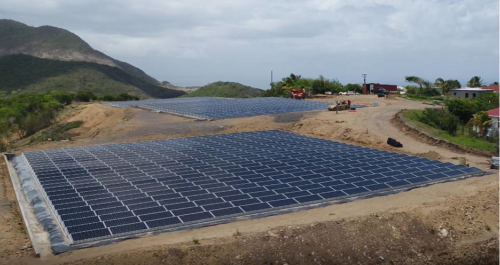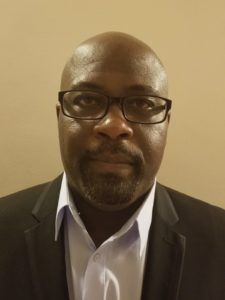
Montserrat — Halfway on the Road to 100 Percent Renewables
The island of Montserrat in the Lesser Antilles has some of the highest electricity rates in the world. Half of the cost of the electricity rate is due to the importation of fossil fuels. However, the island has abundant renewable resources and a goal to have 100 percent renewable electricity generation by 2030. RMI provided project development and project management assistance to the Government of Montserrat and the utility company in the installation of a 750 kW ground mount solar system and 1 MWh of battery energy storage, powering 300 households. This system helped bring Montserrat to 50 percent renewable energy in terms of installed capacity.
We spoke with Owen Lewis, project operations manager for RMI’s Islands Energy Program, about what this system means for the island.
RMI: What community impact have you seen as a result of the project?
Owen: The system brought jobs, awareness, and education. Some 11 entities accounting for 70 local employees were employed. Local awareness and interest in solar as a potential electricity generation source increased significantly. I was pleased to notice eighty percent of the students that attended an organized tour of the solar facility were girls.
RMI: Are there examples of best practices that can be adopted in other geographies?
Owen: The project technical specifications mandated compliance with local/regional factors such as hurricanes, corrosive sea blast, and coastal location, in addition to relevant codes and international best practices. Some examples include designing for 180 mph wind speed and Exposure Category C for hurricanes. We also followed the guidelines on designing hurricane-resilient PV from RMI’s Solar Under Storm reports.
RMI: How is this system integrating resilience and equity?
Owen: The microgrid provides distributed generation and the capability of disconnecting from the main electrical grid on the island. This provides increased resilience to the grid. The facility is utility-owned and therefore the benefits of the reduced diesel expenditure are proportionally shared to all the electricity customers as a reduced monthly fuel surcharge.
RMI: What would you like to see in Montserrat in order to raise ambition for an equitable clean energy transition?
Owen: Montserrat—the government, the utility, and the people—has the will and desire for an equitable clean energy transition. The financial constraints are due primarily to the size of Montserrat’s economy. Therefore, the most direct path requires continued grant funding of future sustainable energy projects.

Owen Lewis is a certified professional project manager and certified procurement operations specialist with over thirty years of practical experience. Owen has six years’ experience working with the RMI’s Islands Program and currently is the Islands Energy Program’s operations manager. Owen is the former director of projects for the Government of Montserrat Project Implementation Unit. He been a board of director member for Montserrat Utilities Limited since June 2011. Owen has a keen interest in sustainable energy project development, management, procurement, and contract administration